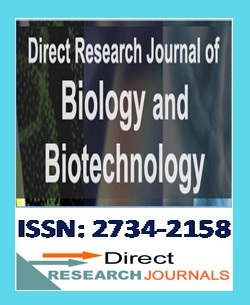Therapeutic Effects of Sesame-Derived Arginine on Inflammation, Oxidative Stress, Muscle Atrophy, and Motor Function in Stroke-Induced Wistar Rats
Keywords:
Arginine, muscle atrophy, oxidative stres, stroke, wistar ratsAbstract
The present study was aimed at analyzing the biochemical, proximate and physiochemical Stroke-induced muscle atrophy and inflammatory response pose significant challenges in post-stroke recovery. This study investigated the therapeutic potential of sesame-derived arginine supplementation in reducing inflammation and oxidative stress, enhancing antioxidant enzyme activity, and preserving motor function in Wistar rats with experimentally induced ischemic stroke. The methodology included arginine extraction from sesame seeds, stroke induction using bilateral common carotid artery occlusion with reperfusion (BCCAO/R), and assessments of serum markers and motor function. Results showed that arginine supplementation led to a significant decrease (p<0.05) in pro-inflammatory cytokines, including TNF-α and IL-6, in stroke-induced rats compared to the control group. Additionally, antioxidant enzyme activities—SOD, CAT, and GPX—were significantly elevated (p<0.05) in the arginine-supplemented group, indicating a reduction in oxidative stress. Serum levels of malondialdehyde (MDA), an indicator of lipid peroxidation, were significantly reduced (p<0.05), while creatine kinase levels, indicative of muscle atrophy, also showed a marked decrease (p<0.05) with arginine treatment. However, no significant improvement in motor function and coordination was observed in the rotarod test.







